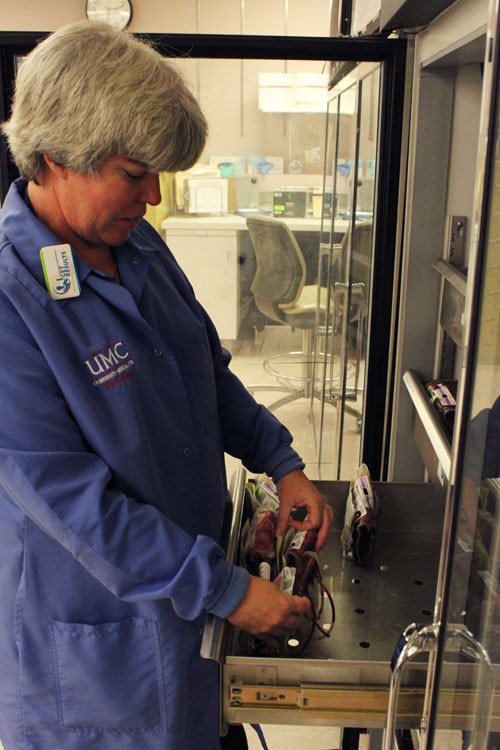Holiday weekends, although fun, tend to be busy for hospitals dealing with accidents from increased drinking and road traffic. But for University Medical Center, this Labor Day weekend was surprisingly uneventful.
According to UMC officials, accidents and demand for transplant organs over the holiday weekend can lead to a dangerous drop in blood bank supplies. However, Katherine Winebar, senior medical technologist in the pathology lab at UMC, said this year showed an unusual turnaround, as demand went down and supplies stayed up.
“”We couldn’t believe what a nice weekend we had,”” she said.
A total of 206 units, about 32 gallons, were given in those four days, a much smaller number than UMC pathologists said they were expecting.
Usually, Winebar said, there are traumas that result in victims needing blood transfusions and organ transplants. But, she added, during the four-day weekend UMC did not perform any trauma-related transplants, which she described as an especially difficult part of the medical profession.
“”Someone receives life, and someone loses life,”” she said. “”That’s the long and short of it.””
It can take several days for blood to be available for use from the time it is donated due to cautionary medical screening for infectious diseases. Platelets only have a shelf life of five days, so it is very important to have continuous donors, said Susan Knoll, a medical technologist in the pathology lab at UMC.
“”We can’t wait till we need it,”” she said.
Knoll added that the types of trauma that use the most blood are from ATV and car accidents, gunshot wounds and car accidents involving pedestrians. Organ transplants also use a great deal of blood. Knoll said she’s seen a patient take as many as 50 units of blood.
“”We can go through 20 units easily,”” Winebar said. “”This Labor Day was not a typical holiday weekend.””
Winebar attributed the low blood demand to the work of the Tucson Police Department.
“”Cop cars were cruising the streets all over the place. I know they had several alcohol checkpoints,”” she said.
The Southern Chapter of the American Red Cross is the blood supplier for UMC. Blood from students who donate on campus will most likely end up at UMC, Winebar said. She added that much of this blood finds its way back into students, mostly due to car accidents.
Caroline Coppinger, a biochemistry freshman, donated at a blood drive on campus last week. She said she donates blood as often as she can — every eight weeks for a donation of whole blood — because it’s easy and can be a deciding factor in trauma situations.
“”Blood is a renewable resource,”” she said. “”I can always make more of it. Donating is painless and it saves lives. It bewilders me that more people aren’t willing to give an hour of their time to save someone else’s life.””









